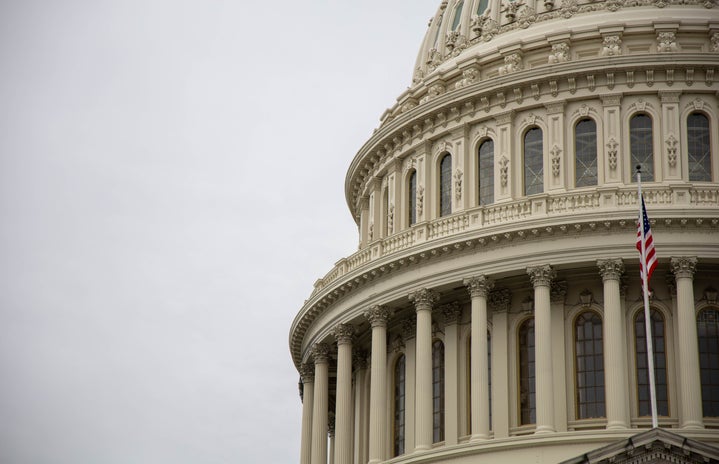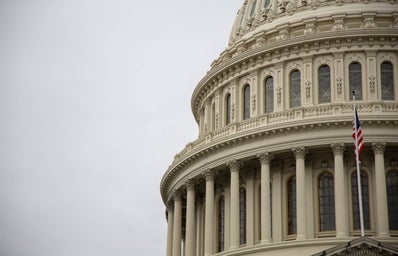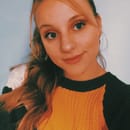March 15th through the 26th was the annual Commission on the Status of Women at the United Nations. Two weeks where member-states, nongovernmental organizations (NGOs), and civil society meet to discuss gender equality.
This year focused on the theme “Women’s full and effective participation and decision-making in public life, as well as the elimination of violence, for achieving gender equality and the empowerment of all women and girls.” Over seven hundred events were hosted with 27,000 people in virtual attendance. I had the privilege of attending as a student activist through Pace; I attended over eighty hours of Zoom panels and will be taking a look at each day to document my experience and give insight into the world of international human rights work, highlighting both the negative and positive ends.
This article reads as a diary, and to be as authentic to each experience there are very strong and heavy topics covered. Before proceeding any further, take a moment to access if these topics may have a negative influence on your mental health. While the article is an overview of my experience, there are topics mentioned that can be very triggering to survivors of violence in all forms.
Day 1 – March 15th
On the first day of the CSW I attended 4 events. Starting with the opening of the session, this was a meeting held by the commission’s chair and attended by member states, civil society was only allowed to watch via live stream – therefore, they were not able to take comments or questions. Ironically, the only people to speak live were men, the women who were invited to speak did so through pre recorded videos. Here it was very simple, they went over the theme and looked back on the 4th World Conference for Women in 1995 and its document known as the Beijing Platform for Action – this is considered the most significant, contemporary international document on gender equality. From this moment the session was kicked off and all aspects of gender equality we’re now under an international microscope for the two weeks.
Following I attended an event hosted by European nations on violence against women in private and public sectors. Here they laid out how each nation has taken on addressing gender
violence in their domestic policy. Spain elaborated this by speaking on their feminist foreign policy priority. The member states emphasized the need for research and how COVID-19 has exasperated violence against women. They pulled back on the Istanbul Convention, which is an international document (2011) of European nations taking action to address violence against women – coincidentally a few days later Turkey would pull out of this.
Next came a conversation circle with other advocates on sexual and reproductive health and rights. This gave insight into the inequity faced by women around the world by pulling on lived experiences. Continuing this conversation, the final event I attended for day one was hosted by NGOs working in India and China to combat discrimination, violence, and femicide. This event took a look into the one child policy, forced abortions, and discrimination against girls.
Day 2 – March 16th
For day two I attended 3 events, starting with addressing mental health consequences of sexual and gender-based violence. Here some of the stats to think about: 35% of women will experience sexual or gender-based violence once in their life, if you were to include harassment the number would go up to 70%, 137 women are killed by a family member every day, less than 40% of women who experience violence well seek help. These women will also have higher rates of depression and other psychiatric disorders as a result of trauma, survivors also have a higher rate of health problems, which includes but is not limited to, HIV/AIDS and unwanted pregnancies. Women are reluctant to disclose violence due to a history of victimization, through education, public funding, and policy, these statistics could be diminished.
The second event I chose to attend looked at suffering caused by COVID and was hosted by Guatemala and the International Federation for Peace and Sustainable Development. Lockdown caused a massive toll on security and safety. Women were trapped with their abusers, health and
financial insecurities expanded, and child marriage increased threefold. It is reported that 243 million women were sexually assaulted in the last year. The hot button of this event was addressing that there is a massive lack in accessibility to receive help, and to call for public policy and academic research.
The last event I attended for this day was focused on addressing if the way we talk about sexual and reproductive health and rights is ableist. This began by addressing barriers in legal capacities and accessibility for disabled women, more specifically, disabled women will face poverty and violence in their own home and will often not be able to speak up. This event took a turn unexpected, becoming a pro-life event that condemned abortion – being the person I am I stood up for choice, to which I was called a dictator by other attendees for forcing my beliefs. Meanwhile abortion has been considered a human right in the UN system since the 1970s. This conversation will play out over and over, throughout the rest of the CSW.
Day 3 – March 17th
On day three I attended 4 events, I started with a look at increasing public and private investments for gender responsive localized economic recovery. COVID-19 eroded much of the progress that had been made for women economically in the past decade. Only 13% of economic measures taken to respond to the pandemic directly involved women. Unfortunately, this event was hosted by delegates of member-states, and because they are limited on what they could say, it focused more on what already has been done than what needs to still be done.
The next event I attended was on Black women, anti-Black racism, and climate justice in the US and was hosted by the NAACP. I was really looking forward to this one, and excited to hear about the perception of the US in the global sphere. However, the speaker never showed; but the 150 people that were on the zoom call, generated a conversation together. I was recognized as a youth (in the UN system, up to 29 years old is considered youth) and they wanted to hear my take on climate justice, as well as how I acted as a white ally in combating racism. I was not prepared to speak, but I did, because I will take any opportunity to share what I know in an open conversation to learn more. This was the first time at the CSW that I felt like I truly had a seat in the room where it happens. Selfishly, it was a wonderful boost to my advocacy, collectively, it was one of the best conversations I have had in a truly long time.
My evening began with looking at climate change and relocation – a huge part of climate change is how communities that are directly impacted are eventually forced out of their homes. This was brought forward from an indigenous perspective; when we think relocation the conversation generally centers the family unit, however this brought awareness to the fact that hospitals, businesses, municipality, and schools are directly impacted as well – further, landowners cannot just relocate what they own, and relocation is both urgent and costly. Not to mention that the land most affected by climate change-induced relocation inhabit the people who contribute least to climate change. The most prominent ask of tribal communities is government assistance, communities struggle to recover and live in constant fear. Climate justice is linked to the right to life and dignity but is not treated as such.
The last I attended on day three was on myth busting domestic violence at work, hosted by the Diversity Council of Australia. I was very intrigued by how something that is personal like domestic violence would be addressed as public, in a work environment. The panelists took the direction of explaining how covid has blurred the lines between private and public. They explained that one in five people who experience domestic violence at home well experience it at work as well, and that it is the job of a workplace to provide strategy and policy that is intersectional and accountable, that provides safety and support for survivors. On the surface level this was all great, but what this event failed to do was to accurately portray survivors and marginalized peoples. What
I mean by this, is that survivors were referred to as victims and the only person to talk about marginalization was a black woman. You cannot provide intersectionality from a closed perspective.
Day 4 – March 18th
Day 4, I attended three events. Starting with a look at violence against migrant women. Gender based violence is always a factor of the migration journey, violence and death is so prevalent that many migrants choose to not speak about it. On the journey women will face being hunted down, put into custody, rape, and potential trafficking. Along with heat, thirst, fear, anxiety, and risk that naturally come along with migration. However, the need to leave instability in their home country outweighs the risks. Reasons to migrate include (but are not limited to) poverty, famine, war, safety/security, honor killing, femicide, or opportunity. What needs to be done? Government resources and support towards migration and entry.
The second event I attended was called Nothing About Us Without Us: Sex Workers, Autonomy, and Decision-making. BY FAR, this was my favorite event I attended. The panel consisted of sex workers and transgender women from across the world – it was the only event I attended over the two weeks to include representation on this level. The speakers highlighted how sex workers are dehumanized and transgender women will face that threefold, they discussed how quarantine exasperated inequity due to the fact that none of them were eligible for unemployment, health benefits, sick leave, and holiday pay – many could not even afford transportation to go home or the necessary resources to protect themselves from violence and disease. They also discussed how sex trafficking and sex work are often confused, they portrayed that their biggest problem is labor exploitation not sexual. And to achieve justice they need to not only be treated properly but to have a seat at the table. I cannot put into words how impactful the session was.
My day took a turn for chaos in the last session I attended. Titled empowering women before and after reproductive decisions, I was under the impression I would be attending an event on choice. I could not have been more wrong. It was hosted by Evangelical Christians who shamed women into believing that their abortions were murder. Their goal was to teach other women how to shame and guilt those in their lives considering abortion. It was an extremely toxic and scary environment to be in. I decided to stay, not only out of curiosity but in the hope that I could defend women who are being attacked. I was called names, attacked by those who believe they were morally superior then I was. I had people addressing me both in the public chat and in private messages, I was condemned to hell multiple times, and told I was delusional – but I cannot imagine how the women who have had abortions and were looped into this felt. Even in a space that is working towards equality, conversations like this prevail; and it is hard to stay strong when you are the only one trying.
Day 5 – March 19th
On day five I only attended one event, looking at climate, COVID-19, and its impacts on health and security, and the increase of violence. This panel was separated in three parts doctors, NGOs, and lived experiences. After the horrors of Trump’s response and his followers’ rhetoric towards the pandemic, it was so refreshing to hear people genuinely care about it. The main take away from this is that we are not biologically vulnerable, societal actions are at fault. Climate change is making the population more susceptible to zoonosis virus (coming from animals, COVID was passed to humans through meat). Further, policy creates an inequity to accessibility – to healthcare, food, shelter, etc.
Day 6 – March 20th
On day 6, I attended two events. Starting with addressing the need for women in power to rebuild communities post COVID. The pandemic has created a deep dependence of people towards their community. Yet, inequity does not allow for everyone to receive the necessary support. For example, we are still at least 256 years away from global equal pay (with the rate we currently change at), which means income decided how much one received economic support. This continued into other sectors: mental health, abuse, homelessness, and so on.
Later in the day, I attended an intergenerational dialogue on civic engagement for racial justice. This gave space for Black women to share the work they do in their communities. Efforts to combat colonialism, trafficking, health injustice, and economic despair were highlighted.
Day 7 – March 21st
On Sunday, I did not attend any events. I spent the day reflecting on what I had learned thus far and preparing for the presentation I would be giving on Tuesday.
Day 8 – March 22nd
Day 8, I went to three events. It started with a reframe on child marriage. The presentation looked into laws to deter the issue in Southeast Asia. However, it took an odd turn, trying to explain that child marriage is “often not what it seems.” This is one of the few events I left early because I could not stomach the content.
After that, I had another rocky event that looked into enhancing policing to address gender-based violence. The panelist talked about the need for gender responsive policing and a judiciary system that was not biased. However, they would not take questions on the racial biases of policing and scenarios where law enforcement is responsible for the violence.
The last event focused on violations towards Indigenous women’s rights. 60% of Indigenous women face violence; a part of which includes disappearances, which refers to missing and murdered Indigenous women who do not receive justice. Environmental degradation is heavily linked to Indigenous women’s rights violations, as well as a history of discrimination and identity erasure.
Day 9 – March 23rd
Day 9 was presentation day! As part of a group of Pace students, I gave a presentation on the importance of gender inclusive language in the UN system. We discussed gender identity, the power of language, the shaping of international norms, and calling communities to action. A recording of our session can be found here.
Day 10 – March 24th
On day 10 I attended two events. First was a look at addressing online sexual exploitation and abuse. Laws have not kept up with technological advancements, because of the debate between privacy/freedom and protection/safety. Because of the lack of action, we do not have international laws or standards on revenge porn, child porn, online trafficking, stalking, stealing private information and photos, and violence.
The second event I attended was on peacebuilding, hosted by a coalition of women working to end the Israel/Palestine conflict. They advocate for a diplomatic agreement and coexistence built on intersectionality (race, religion, ethnicity, gender, class, and nationality). Their message: true gender equality cannot be achieved in a world that does not have true peace.
Day 11 – March 25th
On day 11, I attended an event on intersectional feminism in countries that push back on equality. It addressed the perspective of seven member-states. Turkey recently withdrawing from the Istanbul Convention, an international agreement on addressing violence against women. Nigeria struggles to implement national law; the constitution is taken over all international law. El Salvador has a deeply rooted history of conservatism. Argentina draws out debates until the subject is forgotten about. South Asia struggles to dismantle societal norms via the state. Ireland was founded on policy that is anti-equality. Poland is limited by classism. These issues cause a disconnect between political leaders and civil society.
I spent the rest of this day reading the draft of the Agreed Conclusions – the document produced at the end of each CSW on what action should be taken by member states next. This document focused on accelerating the progress towards access and empowering involvement in public life. Furthermore, it condemned all forms of violence with an emphasis on historically marginalized communities. While also addressing the structural, institutional, and intersecting barriers that were deepened by COVID. It is important to note that the United States distances itself from international conversations, which put us distanced from this document.
Day 12 – March 26th
The final day! The final events focused on hashing out the last few debates on the Agreed Conclusions. The last event I attended was a Joyful Disruption Rally that focused on all of the
wins, highlighting our beautiful differences (cultural, art, music, dance, poems), and focusing on enrichment rather than the challenge.
Take-Aways
Throughout all this, I am a full-time student in the middle of midterm exams. I also intern with the Working Group on Girls, and we held five events during the CSW to give girl advocates (18 and under) space to connect in the international community. I am so grateful for this opportunity, all the highs, lows, stress, excitement, chaos, and happiness all wrapped together. I hope this article gave a bit of insight on what it is like to be a student advocate at the year’s biggest international event for women. If you have made it this far, thank you for following along!


